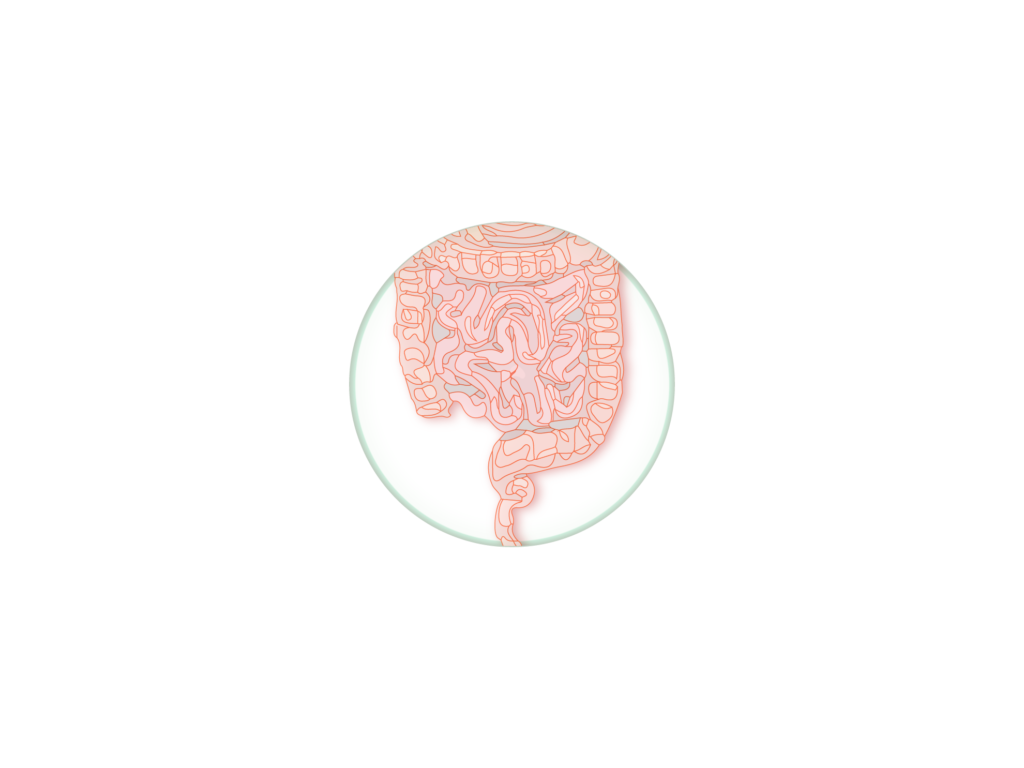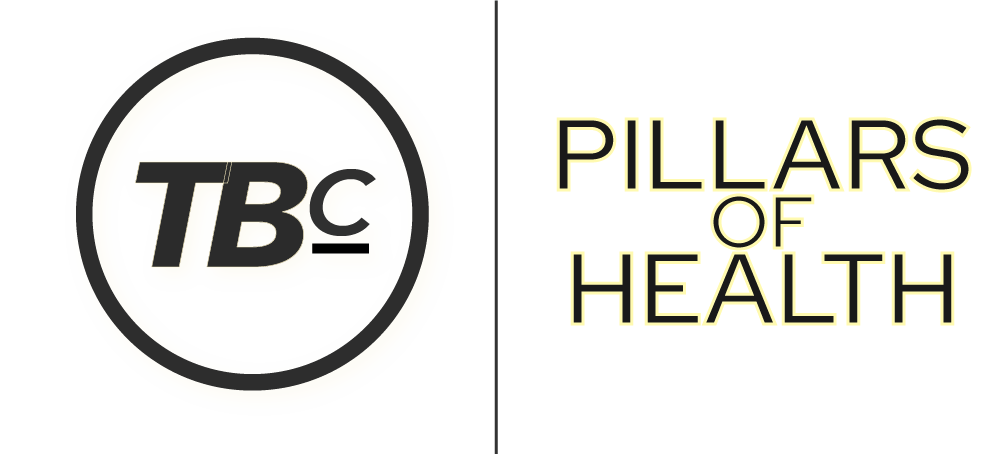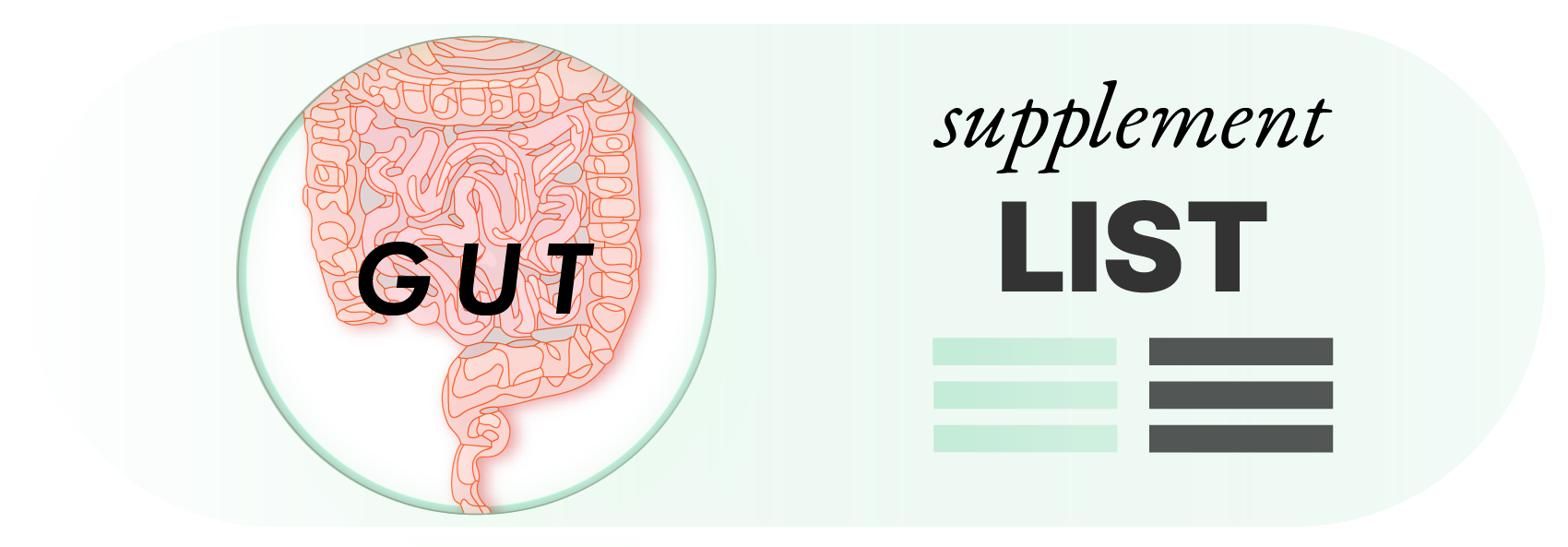Gut supplements can be essential to restoring gut health.
Food alone cannot optimize the gut, nor can it breathe new life into a distressed microbiome.

On the other hand, gut supplements can be even more harmful than helpful — when taken unwisely.
I’ve seen thousands of people traverse these roads over the years — observing what works and what doesn’t — on top of recovering my health after about a decade of chronic illness.
Here’s what I’ve found.
Hyperlinks
Colostrum
A strong foundation — and a potent first step — for any gut health protocol.
There is emerging evidence that bovine colostrum may be one of the promising nutraceuticals which can prevent or mitigate various diseases in newborns and adults.
https://pubmed.ncbi.nlm.nih.gov/25781716/
(Travis’ Rating): 10/10
(Travis’ Rating): 10/10
There are other quality colostrum products, but I have happily returned to Symbiotics for over a decade now.
Colostrum contains:
Colostrum is incredible for both constipation and diarrhea, as well as when fighting off an illness. Most products recommend a higher dose to knock out a bug when sick.
It’s also a critical support for those with dire gut health challenges: often gentle enough to be tolerable, yet powerful enough to promote change.
Colostrum is safe for nearly all people, with the only exception being those with sensitivity to dairy. That said, many lactose-intolerant folks have no issues with colostrum.
Bee Products
An unique source of nutrients, antioxidants, antimicrobials, and prebiotics — a truly well-rounded type of gut supplement.
“Medicinal honey research is undergoing a substantial renaissance.”
https://www.ncbi.nlm.nih.gov/pmc/articles/PMC4837971/
Raw Honey
+ Manuka Honey
+ Bee Pollen | Propolis | Royal Jelly
Raw Honey
Raw honey is a functional food — providing necessary caloric energy in a gentle, nourishing, and healing way. Lean on raw honey both to heal and to fuel your body when dietary intolerances are high.
(Travis’ Rating): 9.6/10
Honey is surprisingly antimicrobial.
Yet, honey also contains prebiotics (oligosaccharides) which feed beneficial microbes — making honey a near-perfect food for gut health.
Honey is known to increase the populations of beneficial bifido- bacteria strains, while white sugar had no effect.
Researchers were able to completely eradicate antibiotic-resistant bacteria on the skin via topical medical-grade (standardized) honey.
When honey enters the digestive tract, it simultaneously feeds beneficial microbes, kills harmful pathogens, and provides nutrients and energy to the body.
Locally-produced honeys possess excellent antibacterial activity comparable to the commercial honeys.
https://www.ncbi.nlm.nih.gov/pmc/articles/PMC3609166/#b53
Honey is even a complete food, providing micronutrients, amino acids, Vitamin C and B-vitamins — and encourages the intestinal absorption of these nutrients while discouraging pathogenic activity.
Flavonoids, polyphenols, and organic acids also contribute to the digestive, immune, and metabolic benefits of honey.
Research in animal models even suggests that not only does honey provide calcium, but it improves calcium absorption into the body.
Honey is praised and valued in nearly every ancient religious and wisdom tradition as both a food and a healing topical balm and internal medicine — with known hunter-gatherer tribes utilizing it as 20% (and more) of daily calories, while commonly living into their 80s.
Honey even seems to directly interfere with cancerous cells:
“[Honey] has significant anticancer activity against human breast and cervical cancer cell lines.”
https://www.ncbi.nlm.nih.gov/pubmed/21167897/
+ Manuka Honey
Everything true about raw honey applies to manuka honey — except this: Manuka is a more potent antimicrobial.
(Travis’ Rating): 9.8/10
Manuka honey has every benefit of raw — and more.
Known for its antibacterial, antiviral, anti-inflammatory, and antioxidant qualities, manuka honey has been used for centuries to heal wounds and improve oral health.
When compared to normal, local varieties, manuka honey has significantly more antimicrobial effects.

Manuka honey can even stimulate macrophages to release compounds such as TNF-α, IL-1β and IL-6 — which are critical for combatting microbial infections and wound healing.
The higher the UMF rating of manuka honey, the more potent the antimicrobial properties.
The only downside to manuka honey, for most locations around the world, is its expense — and higher UMF ratings can be extremely costly. On the bright side, even lower-UMF content seems to have profound antimicrobial activity.
I recommend buying what you can afford — don’t worry about achieving the highest UMF ratings. My results with various affordable manuka honey have been stellar.
Manuka honey has been widely researched and its antibacterial potential is renowned worldwide.
https://www.ncbi.nlm.nih.gov/pmc/articles/PMC3609166/
+ Bee Pollen, Royal Jelly, & Propolis
Contains bee pollen, royal jelly, & propolis.
(Travis’s Rating): 9.7/10
There are over 2500 articles on PubMed concerning the benefits of propolis.
“Propolis has been reported to have various health benefits related to gastrointestinal disorders, allergies, and gynecological, oral, and dermatological problems.”
https://www.ncbi.nlm.nih.gov/pmc/articles/PMC5549483/
Twelve different flavonoids, along with most vitamins and some enzymes are present in propolis.
Over 185 organic compounds have been found in royal jelly.
Royal Jelly may even protect the skin from UVB-induced damage by improving collagen formation in the skin. Royal jelly also contains the unsaturated fatty-acid (10-HDA), which may have antitumor and antibacterial activity.
Turkey Tail Mushroom
A more gentle & balanced immune-boosting mushroom.
Complex immune-activating bioactivity of mycelial-based medicinal mushrooms go beyond effects of insoluble beta-glucans.
https://www.ncbi.nlm.nih.gov/pmc/articles/PMC6889544/
(Travis’ Rating): 9.3/10
TUDCA
A subtle & balanced energizer of the liver & microbiome.
TUDCA has been demonstrated to display potential therapeutic benefits in various models of many diseases such as diabetes, obesity, and neurodegenerative diseases
https://pubmed.ncbi.nlm.nih.gov/31757001/
(Travis’ Rating): 9.6/10
Fulvic Acid
(Shilajit)
Gentle, antioxidant, detoxifying, energizing. Not a silver bullet, but instead, a catalyst that supports other beneficial steps. Less is more with this supplement. It is a weak antimicrobial.
Fulvic acid, a humic substance, has several nutraceutical properties, including anti-inflammation, antimicrobial, and immune regulation abilities.
https://pubmed.ncbi.nlm.nih.gov/33381216/
(Travis’ Rating): 8.2/10
Probiotics
Essential for repopulating the stripped, sparse, or compromised gut microbiome.
Some of the major health benefits attributed to probiotics include improvement of gastrointestinal microflora, enhancement of immune system, reduction of serum cholesterol, cancer prevention, treatment of irritable bowel-associated diarrhoeas, antihypertensive effects as well as improvement of lactose metabolism
https://www.ncbi.nlm.nih.gov/pmc/articles/PMC5031164/
Most people must begin slowly with probiotics. 1-5 Billion CFU is a safer starting dose. If tolerable, slowly work up to larger amounts.
Smidge Sensitive Probiotic
I recommend the powder form. It’s cheaper per dose, and allows you to take very small doses at first.
At these links you can find Smidge, for purchase in the following countries:
in the US
in the UK
in New Zealand
in Australia
(Travis’ Rating): 9.9/10
RenewLife Probiotics
(Travis’ Rating): 9.4/10
Garden of Life RAW Daily Probiotic
For most people, these doses are too large to begin with.
(Travis’ Rating): 8.8/10
(Travis’ Rating): 9.2/10
(Travis’ Rating): 8.9/10
Vitamin Shoppe Brand Probiotics
(Travis’ Rating): 9.3/10
Be wary of marketing hype for probiotics (and all supplements). Soil probiotics and boutique individual strains cannot and will not establish a thriving new population in your gut. At best, they may have a small role in 1) fending off certain overactive pathogens, or 2) catalyzing the effects of better probiotic supplements.
Prebiotics
Able to slightly resist pathogenic fermentation, while selectively feed probiotics — encouraging them to grow.
FACT: Any gut microbe which is fed, can double in size & number within 15-20 minutes.
Prebiotics not only have protective effects on the gastrointestinal system but also on other parts of the body, such as the central nervous system, immune system, and cardiovascular system
https://www.ncbi.nlm.nih.gov/pmc/articles/PMC6463098/
Apple Pectin
One of the most gentle & tolerable prebiotics available.
- Nature’s Plus Apple Pectin (amazon)
- Swanson Apple Pectin (amazon)
(Travis’ Rating): 8.8/10
HMO’s
Human Milk Oligosaccharides
- Layer Origin Pure HMO (amazon)
- Layer Origin Pure HMO + Colostrum Powder) (website)
- Layer Origin Pure HMO + GOS + FOS Powder (website)
(Travis’ Rating): 8.5/10
FOS, GOS, XOS
Various “oligosaccharides” — which are gentle and more tolerable.
- Layer Origin Pure HMO + GOS + FOS Powder (website)
(Travis’ Rating): 8.5/10
Most other prebiotics (not mentioned on this page) are comparatively less tolerable, and more vulnerable to maldigestion by pathogens. Some people have results with other prebiotics, but my recommendations are based on what works best for the most people.
Antimicrobials
These supplements kill microbes — usually indescriminately, which means they can kill beneficial bugs, too.
FACT: Natural antimicrobials are powerful — and that makes them dangerous. They can wipe out good microbes in high doses, or when taken daily — especially on an empty stomach. Take with food to reduce intensity on good microbes. A wiped-out, dysbiotic gut may depend on antimicrobials to set the stage for repopulation.
Prebiotics not only have protective effects on the gastrointestinal system but also on other parts of the body, such as the central nervous system, immune system, and cardiovascular system
https://www.ncbi.nlm.nih.gov/pmc/articles/PMC6463098/
Herbal Antimicrobials
These non-selective herbs can kill good flora. Nearly all herbal supplements will deplete iron. Most people with digestive issues are deficient in iron. For this reason and others, these herbs should not be used indefinitely.
Oregano oil is a powerful full-spectrum antibiotic, killing bacteria, fungus/yeast, and virus alike.
(Travis’ Rating): 8/10
(Travis’ Rating): 7.5/10
(Travis’ Rating): 7/10
(Travis’ Rating): 7.5/10
Monolaurin
Monolaurin can be highly intolerable when yeast/fungus is out of control in the gut.
The tiny pellet form allows you to microdose: To start, take a single, tiny pellet at a time with food. Then work up to a larger dose.
(Travis’ Rating): 8.9/10
S. Boulardii
A “beneficial” yeast that attacks other yeast/fungus, among other beneficial gut effects. Best in small doses, with food. Is not a major part of a healthy gut flora. Can be disruptive in the gut, and therefore, intolerable to some.
(Travis’ Rating): 7.5/10
SF722
A yeast-busting fatty acid. Can be highly intolerable when yeast/fungus is overactive in the gut. Start slow with one gelcap at breakfast.
(Travis’ Rating): 7/10
Apple Cider Vinegar
A powerful killer. Many harm their good gut flora with this, assuming it’s safer than it is. Take with food (mixed in a large glass of water).
(Travis’ Rating): 5.5/10
Enzymes
There are two types of enzymes: Digestive & Systemic.
There are multiple reasons that nearly all of my clients graduate away from enzymes as they get better (or never used them in the first place). Read on for more.
1 — Digestive Enzymes
Digestive enzymes are very helpful in certain situations, but are not a perfect supplement. They cause food to break down too quickly, which can spike blood sugar and overwhelm good microbes. They can also dehydrate and deplete various minerals, including magnesium. Worst of all, virtually every enzyme supplement contains doses far in excess of what’s actually tolerable and helpful — they’re going for maximum effect, rather than true effectiveness and benefit. If supplements only contained 75%-90% smaller dosages, I’d recommend them much more strongly. Most humans, over the long run, do not respond as well to self-described “ultimate“ or “super“ or “double strength” enzymes that come in astronomical doses.
Try taking just one tablet instead of two, with a meal
(Travis’ Rating): 4.9/10
(Travis’ Rating): 4.7/10
2 — Proteolytic (Systemic) ENZYMES
Proteolytic enzymes — taken on an empty stomach — are a bit more beneficial and tolerable than most digestive enzymes, but cause similar problems: doses are much too high, the effect much too intense for most people to sustainably use. Similar side-effects occur, as well: destabilized blood sugar, dehydration, and mineral imbalance (all of which can disrupt sleep, too). Enzymes like serrapeptase and lumbrokinase are so aggressive that often only the most non-sensitive individuals tolerate them.
The most powerful systemic enzyme, with body-wide benefits, including: brain, liver, gut, inflammation, and more. Extremely affordable. Lower dose in this product might increase tolerability.
Delayed release effectively lowers the dose, spreading it out over time
Consider taking just one tablet (not the recommended three)
(Travis’ Rating): 5.7/10
Various Antimicrobial Blends
Antimicrobial blends present a problem: lots of ingredients. We’ll never know which ingredient was a problem or most helpful when taking them. At best, we’ll know the specific blend was good/bad/ugly — or neutral.
Mostly considered an immune-boosting supplement, but that’s exactly what’s needed when gut health has been struggling. I very much appreciate this great product — and still take it when sick. The presence of honey products (propolis, honey) makes this a more balanced offering.
(Travis’ Rating): 8.7/10
An extremely powerful — extremely powerful — biofilm-busting antimicrobial. The combination of herbs is incredibly robust. The time and place to use this is when it’s absolutely needed.
(Travis’ Rating): 8.7/10
A collection of many fungus-killing compounds, this product is much too aggressive for most when ongoing yeast/fungus issues in the gut are prevalent. The exact people who need to control fungus usually cannot tolerate the compounds that target yeast the most. Sick building syndrome is a major player: It’s hard to control fungus when we are breathing it in all day in our home. Start with one pill with a meal.
(Travis’ Rating): 7/10



